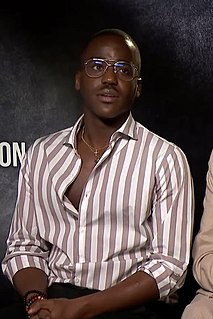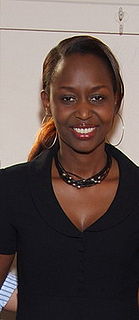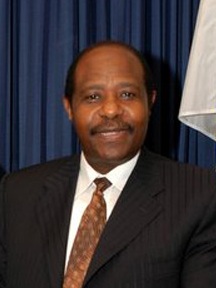Top 98 Quotes & Sayings by Ncuti Gatwa
Explore popular quotes and sayings by Ncuti Gatwa.
Last updated on April 17, 2025.
I went to drama school so I had quite a regimented classical training, regimented process of analyzing a script. I'll go through the whole script and highlight everything my character says about me, and in another color I'll highlight what other characters say about me, and I'll highlight all the things I say about other characters.
The only thing stopping me from being on the streets was the fact I had friends. But you can use up that goodwill. Or you feel scared to ask people for help. Your pride kicks in. So my life before 'Sex Education' was so different. To go to my audition, I had to get my friend to transfer me 10 quid so I could top up my Oyster card.
I think it's quite natural as an actor to compare yourself to how well other people are doing and how other people might've played that role you auditioned for. There's a lot of comparison you can do as an actor, which is natural, because it's a competitive industry. However, we're all individuals, so you can only ever be yourself.
Maybe six months out of drama school, I was working at the Dundee Rep Theatre, I worked there for about a year, and I had an audition for the National Theatre of Scotland. I went into the audition room and when I came out I realized my fly was undone. I did this whole dramatic speech with my fly hanging low.
Hair in the black community is such a big thing culturally. The barbershop is a place for black men to socialise, catch up and bond. It's the same for black women in the salon. Going there is my favourite thing to do in the week. You catch up with people, someone comes around with food, someone else is selling something.
I'd been warned that acting was an unstable profession and knew my parents couldn't support me financially. I had assured them I was going to work as hard as possible to make this career happen so their hard work, as immigrants who fled Rwanda and sacrificed everything for me, wouldn't be in vain. But I was falling short on my promise.




